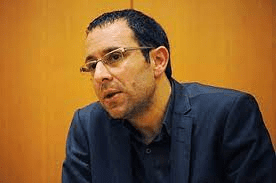The Middle East Reset
Amid the War on Gaza
May 7, 2024
Summary
The war on Gaza has reshaped the previously ongoing trend of normalization and de-escalation that was materializing in the Middle East and North Africa (MENA) region, redefining the region’s internal politics and relations with external players. In this context, the Middle East Council on Global Affairs (ME Council) convened an online discussion on the ramifications of Israel’s ongoing war on Gaza and its impact on regional dynamics. Galip Dalay, a nonresident senior fellow at the ME Council, moderated the event. The panel of experts included Ebtesam al-Ketbi, president and founder of the Emirates Policy Center; Daniel Levy, president of the US / Middle East Project (USMEP); Trita Parsi, executive vice president of the Quincy Institute for Responsible Statecraft; and Vali Nasr, professor at Johns Hopkins University’s School of Advanced International Studies (SAIS).
Ebtesam al-Ketbi started the discussion by emphasizing the profound impacts of the war on Gaza on regional realignments. Al-Ketbi noted that the war disrupted the normalization processes between Saudi Arabia and Israel, as well as between Iran and Saudi Arabia. The post-October 7 shift positioned previously sidelined actors as potential spoilers, underlining the fragility of diplomatic initiatives in the region. Moreover, in her view, the conflict underscored the growing influence of non-state actors. It also prompted a re-evaluation of regional foreign policies—such as towards the Abraham Accords and India Middle East-Europe Economic Corridor (IMEC)—amid a trend towards multipolarity and other geo-economic considerations. On top of this, al-Ketbi noted that the U.S. presence in the region before October 7 was seen as diminishing, whereas afterward Washington has re-engaged within the region.
Daniel Levy then highlighted the evolving significance of the Palestinian issue in regional politics. Levy pointed to the global mobilization in support of Palestine, arguing that it reflects a broader sentiment of solidarity against injustice resonating both within the region and beyond. However, he noted that the signatories of the Abraham Accords have not revoked their normalization agreements with Israel despite its ongoing genocidal actions. Nevertheless, Türkiye’s suspension of trade relations with Israel and Colombia’s severance of diplomatic ties indicate that Israel is losing credibility globally. Regardless, Levy then pointed out that Israel is not a de-escalatory power within the region, as it does not have a clear political horizon regarding Palestinians. Levy also remarked that normalization between Saudi and Israel is not slowing down.
Subsequently, Trita Parsi analyzed Iran’s strategic positioning before and after the war on Gaza. Parsi argued that, before October 7, Iran pursued a strategy of strategic patience, coming to terms with the fact that sustainable sanctions relief was not possible. Instead, Tehran shifted focus to regional trade partnerships to circumvent sanctions. This shift caused the U.S. to lose a measure of leverage in negotiations with Iran. However, the Israeli attack on the Iranian consulate in Damascus disrupted this approach, provoking a retaliation that took the form of Tehran’s first direct attack on Israel. Parsi also noted a volatile trajectory in Saudi-Iran relations since October 7, with recent diplomatic exchanges signaling heightened tensions and cooperation currently at an all-time low. However, Parsi also underlined that certain Gulf states prevented the U.S. from using bases in their countries to attack Iran.
Adding to the discussion, Vali Nasr highlighted a lack of clarity in the United States’ strategy toward the region. While the Middle East experienced a period of relative de-escalation prior to October 7, subsequent events have exposed U.S. policy failures in managing Israeli actions and assuaging regional allies’ security concerns. Nasr also discussed the prospect of a security pact between Saudi Arabia and the Washington, highlighting that Riyadh wants to include a nuclear component to any agreement, which could further alter the regional balance of power.
In the subsequent question and answer session, Vali Nasr addressed the implications of these trends on China and Russia’s roles in the Middle East. Notably, both countries stand to benefit from influencing Tehran to prevent escalation towards Gulf countries. Dalay then circling back to Levy, who stated that Zionism is under the microscope, as some re-evaluate Israel’s diminished ability to provide safety and security. Responding to a question about the feasibility of an international conference on Palestine, Nasr expressed skepticism about the likelihood and effectiveness of a conference to address the Palestinian issue. With Israel intensifying its military actions in Gaza, it is unlikely that any meaningful discussion or progress will occur, especially with the upcoming U.S. elections potentially causing delays, although, in Nasr’s opinion, there are no significant policy differences between the Biden and Trump administrations on this matter.
Speakers

Trita Parsi
Executive Vice President, The Quincy Institute

Vali Nasr
Majid Khadduri Professor of International Affairs and Middle East Studies at the Johns Hopkins University School of Advanced International Studies

Ebtesam al-Ketbi
President and Founder of the Emirates Policy Center


